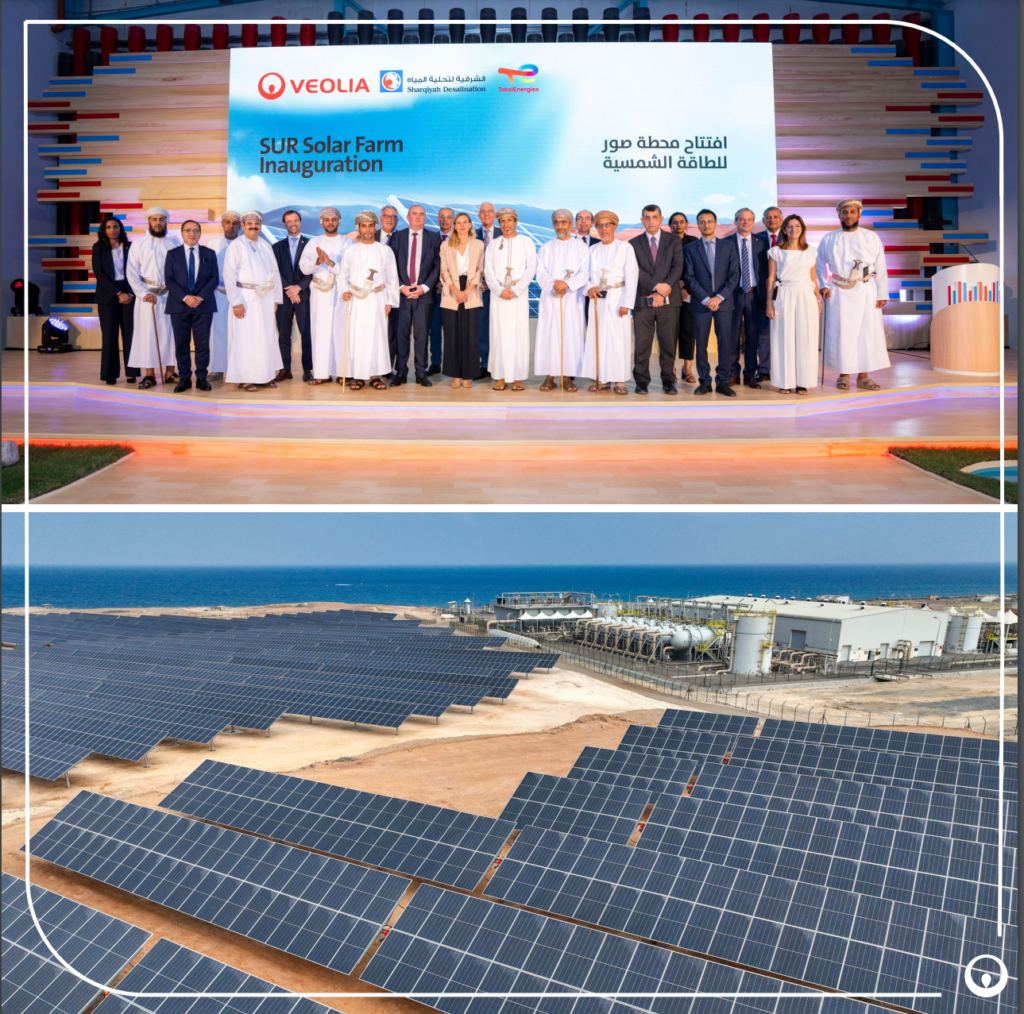
Close

Today’s rapid population and economic growth brings many challenges such as water shortage. To prevent over-extraction of fresh water, turning to alternative resources has become a necessity. Desalination of sea water is a high potential solution to face potable water scarcity and thanks to innovative technologies, it becomes more and more ecologically and economically efficient.
The Sur Desalination Plant puts a lot of effort into reducing the environmental impact of the desalination process. Two outstanding aspects are:
On 6th November 2023, the Minister of Energy and Minerals, Sultanate of Oman, inaugurated the 17-megawatt peak (MWp) solar photovoltaic (PV) farm in Sur, Oman. This solar farm will provide green energy to power the Sur Desalination Plant, which is considered the largest solar system for a desalination plant in Oman. The solar PV farm, developed in collaboration with Veolia and TotalEnergies, is a significant milestone towards the region’s decarbonisation efforts. With an annual capacity of over 32,000 megawatt-hours (MWh) of green electricity, the solar plant will cover 100% of the desalination plant’s consumption during daylight hours.
The implementation of the solar PV farm will contribute towards reducing carbon dioxide (CO2) emissions in the region. It is estimated that the plant will cut approximately 27,200 tons of CO2 emissions per year, which is equivalent to the emissions generated by around 6,000 internal combustion engine-powered vehicles over the same period.
The construction of the solar plant commenced in August 2022 and underwent thorough testing from 30 March 2023 to 15 April 2023. Following successful testing, the commercial operation was achieved on 16th April 2023. The lease agreement for the solar farm operation is valid until 31st March 2036, ensuring long-term sustainability. About 25M KWh has been generated in the last three quarters of 2023, equating to a reduction in carbon emissions of 22k tons.
